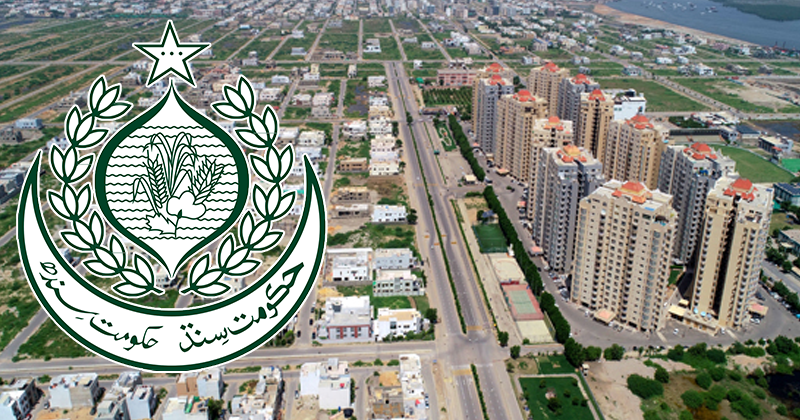Naya Pakistan – Healthy Pakistan
Proposals for National Health Policy
For Next 20 Years (2019 – 2039)
(To Improve Healthcare Planning & Management)
Dr. Faisal Khan
Paediatrician & Public Health Specialist, Peshawar, Pakistan.
M.B.B.S, SMLE, MPH, MCPS, MRCPCH-UK (Scholar)
Department of Paediatrics
Al-Dar Hospital Madina Munawara, Saudi Arabia.
To achieve the most challenging goal “Naya Pakistan – Healthy Pakistan, our new federal government has to plan systematic, immense and massive reforms across Pakistan in the health sector, with the aim to bring back top medical professionals from abroad to carry out and implement the upcoming new health policy. Federal Govt has to execute some truly effective medical teaching institutions reforms in all over the Pakistan unanimously with the help and consent of all provincial governments,
federal & provincial ministries of health, doctor’s associations, paramedical alliances, ministries of education, higher education commission, PMDC and DRAP. Same time there is a need to plan to introduce positive changes to the Pakistan Medical and Dental Council (PMDC) and Drug Regulatory Authority of Pakistan (DRAP) to give the country a truly effective national health policy, under the vision of “Naya Pakistan – Healthy Pakistan.
Special Task Force & Social Support Groups:
The leadership of new Govt has to create special task force and social support groups on permanent basis to handle and look after all issues related to public health, medical teaching, health information system, medical research and also community awareness regarding health issues in the country, along with other issues related to curriculum, quality of medical graduates and a continuous supervision of all teaching & learning process related to health sector in Pakistan. This special task force & social support groups will be helpful to implement on suggested proposals and to achieve the goal of “Naya Pakistan – Healthy Pakistan”
Basic Aim of Proposal for National Health Policy:
Basic aim of these proposals to focus on construction of an effective health policy to deal with the main challenges we are facing in the public health segment as a developing country, which demand for more systemic approaches from governance, management, and leadership for the betterment of healthcare sector in Pakistan. Pakistan is struggling to improve the health statistics since many decades. There is a long way to go, because our health statistics still unable to match World Health
Organization’s set standards. If we have to design and construct truly an effective national health policy then it’s an essential need to keep in view the following basic facts regarding current healthcare conditions in Pakistanas per united nations and world health organization’s recent statistics.
Current Healthcare Statistics In Pakistan:
• The current population of Pakistan is 201,313,705
• Maternal mortality rate: 260/100,000 live births
• Neonatal mortality rate: 46.6l1000 live births
• Infant mortality rate: 72/1,000 live births
• Under age 5 mortality rate: 65.75/1000 births
• Physicians in country: 7.8/10,000 population
• Nurses and midwifes: 3.8/10,000 population
• Healthcare workforce (physicians, nurses and
midwives): 11.6/10,000 population
• Population per hospital bed ratio of approx. 1/1600
Most Common Diseases In Pakistan:
Quite a lot of diseases that have been eliminated from most parts of the world, but still existing in Pakistan. Mismanaged & mishandled healthcare strategies, environmental pollution, deficiency of educational, financial and economic development, are the major causes and mainly responsible for the increase of diseases and decrease of healthcare facilities in Pakistan. According to the World Health Organization (WHO), Pakistan ranks at 122 out of 190 countries in terms of healthcare facilities.
Most Common Transmissible Diseases In Pakistan:
Intestinal Infections:
Infection is the most common form of disease in Pakistan, since it occurs on the basis of co-infection. Contamination, poor sanitation, fewer resources and lack of medication are the main factors behind infection. Additionally, intestinal infections include cholera, typhoid fever, dysentery, food poisoning and diarrhea among others.
Insect/Mosquito-Borne Diseases:
Malaria, dengue fever and yellow fever are the three most common mosquito borne diseases that occur in Pakistan.
Polio:
Pakistan risks being the last country in the world with endemic polio transmission. In 2010 alone, 192 Polio cases were registered in Pakistan, and in current year till now 3 cases are registered as per available data.
Bacterial Diseases:
The infections that bacteria may cause include urinary tract infections and strep throat. However, typhoid fever and tuberculosis are some of the deadliest bacterial diseases that are common causes of death in Pakistan.
Viral Diseases:
Viral diseases include viral hepatitis, mumps, rabies, measles, chicken pox, and many more. The most common and serious in Pakistan are Hepatitis A and E.
Hepatitis A and E:
Hepatitis A is a most common viral disease in Pakistan, spreads through contaminated water or unhealthy food. It occurs as a result of poor sanitation. Its symptoms include fever, jaundice and diarrhea and it deteriorates the liver functions. Hepatitis E is another viral disease, also affecting the liver functions. Contaminated water is its primary cause for spreading. Furthermore, it may disrupt the urinary tract as well.
Tuberculosis:
Pakistan ranks 8 out of the 22 countries in the world that are most highly prone to tuberculosis, according to WHO. Tuberculosis can occur in the pulmonary (lungs), respiratory, and central nervous system. Furthermore, it takes place as meningitis (brain), as well as bones, joints and other organs. It’s a poor people’s disease, tied with malnutrition. Pakistan ranked 6th in the world with the highest burden of TB. Approximately 330,000 to 480,000 new TB cases registered each year in Pakistan.
HIV/AIDS:
According to the WHO &UNAIDS, it is estimated that there are around 100,000 HIV positive cases in Pakistan. The major cause of this disease in Pakistan is the use of infected syringes among the drug addicts. Government needs to take serious action to prevent the HIV AIDS in Pakistan as the number pf patients with this disease are growing at an alarming rate with each passing year.
Most Common Non-Transmissible Diseases in Pakistan
Pakistan has a double burden of disease issue, in addition to communicable diseases, Pakistan has a high burden of non-communicable diseases. More than 59% of deaths in adults are due to non-communicable diseases.
Cancer:
Cancer is arguably, one of the leading causes of death in Pakistan, representing 8% of all deaths. Lung cancer and breast cancer are the two most common types of cancer in Pakistan. Majority of Pakistan’s cancer patients do not have access to proper treatment. Additionally, there is the lack of education and awareness regarding cancer as well. Therefore, patients are not treated until they reach critical stages of cancer, after which treatment becomes ineffective and they are unable to be cured in time.
Diabetes:
Pakistan has the highest diabetes rates in all of South Asia, with as many as 7 million people affected by the disease in all over country.
Blood Pressure, Coronary & Ischemic Heart Diseases:
Blood Pressure, Coronary &Ischemic heart diseases are the most lethal diseases in Pakistan. Air pollution, smoking and unhealthy food choices are among the leading causes of this disease.
Stroke & Hemorrhage:
A stroke is when blood flow to the brain is disrupted. There are typically two types of strokes, ischemic and hemorrhage. Stroke is a major cause of death in Pakistan.
Maternal, Neonatal and Child Health Problems:
Mother, Neonatal and child health is a serious issue which is widespread in rural areas than that in cities. Due to lack of proper food, awareness and treatment, women in rural areas suffer during their pregnancy resulting in poor health of their babies. Maternal and child health is one of the serious health issues in Pakistan which needs immediate action.
Dental Diseases:
Dental caries (tooth decay) is the single most common chronic childhood disease in the country. More than 90 % of people over 60 have gum disease. Oral health is not integrated with other public health programs in Pakistan, even there is no National Oral Health Plan.
Genetic & Mental Disorders:
In Pakistan there is high prevalence of genetic& mental disorders such as Thalassemia, Autism and other Mental Health problems. Most of them are preventable, but still there is no planning and management for such type of diseases and disorders.
15 Most Important Proposals for National Health Policy:
(To Improve Healthcare Planning & Management)
Proposal 1:
Our newly elected government has to face so many challenges to design a perfect national health policy. There is a need for radical improvement in already existing hospitals, medical colleges, healthcare institutions, dispensaries, health units, nursing colleges, LHV training centers, to make them state of the art institutions, directly responsible for providing medical & surgical treatment,
nursing care and all types of healthcare facilities to the people of Pakistan, by accrediting health intuitions from national and international accrediting agencies & organizations to improve and sustain international health standards. New health policy should be helpful to deal with health inequalities among urban and rural areas and also between different classes of the society.
Proposal 2:
The government needs to play its role in providing access to more hospitals and awareness regarding lethal diseases, so that people can get treatment done in time. To achieve this goal, an effective planning and management is essential for preventive healthcare through action and awareness on the issues related to the availability of healthcare facilities in their respective areas, though creating active, effective & useful information desks in all major healthcare centers.
Awareness about water and sanitation, food and drug adulteration, healthy diet and lifestyle. There is a need to complete decentralization and de-politicization of health governance, supported by a motivated and need-based health workforce. We should prioritize primary healthcare with special focus on mother and child care, and school health program.
Proposal 3:
New government has to take following steps with an increase in public health funding, develop a thoroughly reliable and integrated health information system for evidence-based planning and decision making, sustained awareness and prevention programs should be launched to control the spread of communicable & non-communicable diseases for example, hepatitis, tuberculosis, HIV, polio, tb & dengue.
Campaign against tobacco use and other addictive products and a drive about prevention of common genetic disorders should be launched. There is a need to create infectious & non-infectious diseases cells at the level of Basic Health Units (BHUs), should be integrated with centralized national health information system. This will help to monitor the burden of diseases in particular areas and also help to utilize funds more effectively and wisely before the disease is epidemic.
Moreover, there is a need for an improved sanitation and access to safe drinking water should be a high priority action of the government to prevent waterborne diseases, a community based mega sanitation and safe water program need to be initiated. It needs creation of specific funds at the district level to implement and manage sanitation schemes at both urban and rural components.
Proposal 4:
Need to review and update food and drug regulation and legislation to prevent adulteration of food and prevent the production of spurious drugs, with an aim to insure uniform implementation of food and drug policies through transparency in governance and public awareness, required a setup of internationally accredited food and drug testing laboratories.
Proposal 5:
Moreover, complete decentralization and de-politicization of health governance is the basic need for an effective national health policy. Re-engineered health governance, creation of a health division at the federal level with responsibility for national health plans and national health regulations are also basic steps to achieve the goal of an effective health policy. Research and in-service training institutes to upgrade capacity and quality of health workforce a district monitoring and oversight system must be designed by the new govt of Pakistan.
Proposal 6:
As we know Human resources in healthcare sector are not properly and systematically planned in Pakistan, with the result that there are only 7 to 8 doctors & and only 3 to 4 nurses for every 10 thousand people. So, our new health policy should be able to deal with the problem of “brain drain” from rural to urban areas and abroad. It’s also time to scaling-up and to increase the number of public health care workers, their distribution,
and to polish their capabilities. New Govt has to play its role in providing quality essential healthcare services equally in all urban and rural areas to reduce the burden of out-of-pocket expenditure derived from seeking good healthcare facilities in the private sector, for the low socioeconomic status population.
Proposal 7:
Regarding the use of latest technology in healthcare sector, our approach should be as a principle rather than strategy. Our main areas of focus should be integration of health management system, patient management system, health information system, clinical information system, administrative system, linking all hospitals through the district health information system, and a system to use GPRS enabled smartphone’s to track workers locations for accountability. Govt. Should create a health equity fund to pay for the treatment of catastrophic illness of the poorest of the poor through using innovative IT based technology for registered hospitals to process funding requests.
Need to use an automatic interface with NADRA database information technology will ensure the entire cycle from request to funding is completed within the shortest time frame according to eligibility criteria, which one will begin from the poorest of the poor.
Proposal 8:
To encourage health insurance system, govt. Has to create an enabling environment for private health insurance companies, incentivize private sector employers to offer health insurance to all employees, not only those covered by government social security network. To achieve the goal also a need to give private employers the choice of opting out of social security by registering in government approved health insurance schemes.
Proposal 9:
It’s a stage to develop new dimensions for a multicomponent multidisciplinary approach and also legislation through parliament to achieve the goal, and to help meet the unmet demand for health services through effective rules, regulations and a better national health policy. A mandatory legislation needed to increase contact and concern with child health, vaccination programs, and also steps towards child protection, with an improvement in healthcare response to domestic violence and abuse, with an influence of awareness and education about childhood immunization & vaccination.
Proposal 10:
New health policy also has to fulfil significant demand for women health care especially maternal health care. Only 33 percent of births take place in a health facility, and less than two fifths (only 38 percent) of births occurred with the assistance of a skilled medical practitioner.
Pakistan has a high fertility rate with 4.2 million new births annually. This rapid population growth will further strain an already overstretched, overburdened and underperforming health care services delivery system, including deliveries by skilled birth attendants. So, there is a need an effective family planning & population control policy as well.
Proposal 11:
To focus on primary healthcare, Rural Health Center (RHC) to be the fulcrum of primary healthcare in their areas. All RHC should be responsible to oversee all BHUs and dispensaries in their catchment. BHUs to integrate the delivery of all preventive and curative services of its catchment area. Elected village councils & local governments should be integrated with the management of the RHCs and BHUs.
To ensure safe motherhood, Maternal, Neonatal and Child Health Services and Emergency Obstratetical Care (EMOC) at-least half of all BHUs have to work 24/7 equipped with fully functioning labor/delivery facilities. Need to improve reproductive health services, including birth spacing, immunization programs, school health services to reduce prevalence of malnutrition and stunting and to promote hygiene, including oro-dental health.
Proposal 12:
Need to upgrade selected RHCs for accidents and emergency services, interconnecting primary and secondary care hospitals with an ambulatory ambulance services. A foster Public-Private partnership to provide services where public sector infrastructure is insufficient. Initiate a program for deploying Dentists and Dental Technicians in all RHCs.
Their should be an infection control team preferably at BHUs level to decrease the burden of infectious/preventable diseases through an active community participation, and health promotion strategies. Focus on preventable diseases through primary health care approach with community participation and social support groups.
Proposal 13:
The service structure for doctors, nurses and pera-medical staff need to improve, currently it is not well defined, it favors tenure over competence, it largely ignores technical capacities and does not allow encouragements, incentives or rewards for performance. The conduct of education for medical, nursing and related cadres is mostly conventional and does not utilize recent developments in the field of medical & health education. So, there is a serious need to develop a well-organized system for continuing medical education for all health providers, they should be continuously updated, supervised and should be well equipped with the latest skills to tackle emerging diseases.
Proposal 14:
The federal and provincial governments will have to clearly plan and forecast their human resource requirement for next 20 years in health sector, according to the proposed services in the particular areas. Government should have to take vigorously short term and long term steps to achieve the balance in manpower and needs of public health sector.
Provincial health ministries must have to develop, implement, maintain and continuously update a database of health human resources, including the government sector, private sector, social support groups and different non-governmental organizations related to health sector. Countrywide campaigns should be launched to indorse and promote the everlasting roles that of health researchers, physicians, nurses, midwives, allied health professionals and social support groups should have to play in providing and delivering effective health facilities to the public.
Proposal 15:
Federal and all provincial health ministries should have to launch awareness campaigns with the help of social support groups & media to educate the people regarding advantages of: healthy life style, healthy food, balanced eating habits, family planning, anti-narcotics, importance of vaccinations, importance of healthy activities, importance of daily exercise & sports, importance of play grounds, walking tracks, plantation, pollution control, clean environment, public parks, gyms, sports clubs, disadvantages of: obesity, fast food, beverages,
extra salty or sugary products, self-medication, all types of smoking. Moreover, awareness campaigns about seasonal diseases, infection control programs, effective health information system, emergency mobile units, ambulance services, medical Insurance, school vaccination and issuance of health cards to the general public also good ideas, these concepts could be more successful if will be followed by all above mentioned awareness campaigns.
Proposals for National Health Policy
For Next 20 Years (2019 – 2039)
(To Improve Healthcare Planning & Management)
Dr. Faisal Khan
Paediatrician & Public Health Specialist, Peshawar, Pakistan.
M.B.B.S, SMLE, MPH, MCPS, MRCPCH-UK (Scholar)
Department of Paediatrics
Al-Dar Hospital Madina Munawara, Saudi Arabia.
To achieve the most challenging goal “Naya Pakistan – Healthy Pakistan, our new federal government has to plan systematic, immense and massive reforms across Pakistan in the health sector, with the aim to bring back top medical professionals from abroad to carry out and implement the upcoming new health policy. Federal Govt has to execute some truly effective medical teaching institutions reforms in all over the Pakistan unanimously with the help and consent of all provincial governments,
federal & provincial ministries of health, doctor’s associations, paramedical alliances, ministries of education, higher education commission, PMDC and DRAP. Same time there is a need to plan to introduce positive changes to the Pakistan Medical and Dental Council (PMDC) and Drug Regulatory Authority of Pakistan (DRAP) to give the country a truly effective national health policy, under the vision of “Naya Pakistan – Healthy Pakistan.
Special Task Force & Social Support Groups:
The leadership of new Govt has to create special task force and social support groups on permanent basis to handle and look after all issues related to public health, medical teaching, health information system, medical research and also community awareness regarding health issues in the country, along with other issues related to curriculum, quality of medical graduates and a continuous supervision of all teaching & learning process related to health sector in Pakistan. This special task force & social support groups will be helpful to implement on suggested proposals and to achieve the goal of “Naya Pakistan – Healthy Pakistan”
Basic Aim of Proposal for National Health Policy:
Basic aim of these proposals to focus on construction of an effective health policy to deal with the main challenges we are facing in the public health segment as a developing country, which demand for more systemic approaches from governance, management, and leadership for the betterment of healthcare sector in Pakistan. Pakistan is struggling to improve the health statistics since many decades. There is a long way to go, because our health statistics still unable to match World Health
Organization’s set standards. If we have to design and construct truly an effective national health policy then it’s an essential need to keep in view the following basic facts regarding current healthcare conditions in Pakistanas per united nations and world health organization’s recent statistics.
Current Healthcare Statistics In Pakistan:
• The current population of Pakistan is 201,313,705
• Maternal mortality rate: 260/100,000 live births
• Neonatal mortality rate: 46.6l1000 live births
• Infant mortality rate: 72/1,000 live births
• Under age 5 mortality rate: 65.75/1000 births
• Physicians in country: 7.8/10,000 population
• Nurses and midwifes: 3.8/10,000 population
• Healthcare workforce (physicians, nurses and
midwives): 11.6/10,000 population
• Population per hospital bed ratio of approx. 1/1600
Most Common Diseases In Pakistan:
Quite a lot of diseases that have been eliminated from most parts of the world, but still existing in Pakistan. Mismanaged & mishandled healthcare strategies, environmental pollution, deficiency of educational, financial and economic development, are the major causes and mainly responsible for the increase of diseases and decrease of healthcare facilities in Pakistan. According to the World Health Organization (WHO), Pakistan ranks at 122 out of 190 countries in terms of healthcare facilities.
Most Common Transmissible Diseases In Pakistan:
Intestinal Infections:
Infection is the most common form of disease in Pakistan, since it occurs on the basis of co-infection. Contamination, poor sanitation, fewer resources and lack of medication are the main factors behind infection. Additionally, intestinal infections include cholera, typhoid fever, dysentery, food poisoning and diarrhea among others.
Insect/Mosquito-Borne Diseases:
Malaria, dengue fever and yellow fever are the three most common mosquito borne diseases that occur in Pakistan.
Polio:
Pakistan risks being the last country in the world with endemic polio transmission. In 2010 alone, 192 Polio cases were registered in Pakistan, and in current year till now 3 cases are registered as per available data.
Bacterial Diseases:
The infections that bacteria may cause include urinary tract infections and strep throat. However, typhoid fever and tuberculosis are some of the deadliest bacterial diseases that are common causes of death in Pakistan.
Viral Diseases:
Viral diseases include viral hepatitis, mumps, rabies, measles, chicken pox, and many more. The most common and serious in Pakistan are Hepatitis A and E.
Hepatitis A and E:
Hepatitis A is a most common viral disease in Pakistan, spreads through contaminated water or unhealthy food. It occurs as a result of poor sanitation. Its symptoms include fever, jaundice and diarrhea and it deteriorates the liver functions. Hepatitis E is another viral disease, also affecting the liver functions. Contaminated water is its primary cause for spreading. Furthermore, it may disrupt the urinary tract as well.
Tuberculosis:
Pakistan ranks 8 out of the 22 countries in the world that are most highly prone to tuberculosis, according to WHO. Tuberculosis can occur in the pulmonary (lungs), respiratory, and central nervous system. Furthermore, it takes place as meningitis (brain), as well as bones, joints and other organs. It’s a poor people’s disease, tied with malnutrition. Pakistan ranked 6th in the world with the highest burden of TB. Approximately 330,000 to 480,000 new TB cases registered each year in Pakistan.
HIV/AIDS:
According to the WHO &UNAIDS, it is estimated that there are around 100,000 HIV positive cases in Pakistan. The major cause of this disease in Pakistan is the use of infected syringes among the drug addicts. Government needs to take serious action to prevent the HIV AIDS in Pakistan as the number pf patients with this disease are growing at an alarming rate with each passing year.
Most Common Non-Transmissible Diseases in Pakistan
Pakistan has a double burden of disease issue, in addition to communicable diseases, Pakistan has a high burden of non-communicable diseases. More than 59% of deaths in adults are due to non-communicable diseases.
Cancer:
Cancer is arguably, one of the leading causes of death in Pakistan, representing 8% of all deaths. Lung cancer and breast cancer are the two most common types of cancer in Pakistan. Majority of Pakistan’s cancer patients do not have access to proper treatment. Additionally, there is the lack of education and awareness regarding cancer as well. Therefore, patients are not treated until they reach critical stages of cancer, after which treatment becomes ineffective and they are unable to be cured in time.
Diabetes:
Pakistan has the highest diabetes rates in all of South Asia, with as many as 7 million people affected by the disease in all over country.
Blood Pressure, Coronary & Ischemic Heart Diseases:
Blood Pressure, Coronary &Ischemic heart diseases are the most lethal diseases in Pakistan. Air pollution, smoking and unhealthy food choices are among the leading causes of this disease.
Stroke & Hemorrhage:
A stroke is when blood flow to the brain is disrupted. There are typically two types of strokes, ischemic and hemorrhage. Stroke is a major cause of death in Pakistan.
Maternal, Neonatal and Child Health Problems:
Mother, Neonatal and child health is a serious issue which is widespread in rural areas than that in cities. Due to lack of proper food, awareness and treatment, women in rural areas suffer during their pregnancy resulting in poor health of their babies. Maternal and child health is one of the serious health issues in Pakistan which needs immediate action.
Dental Diseases:
Dental caries (tooth decay) is the single most common chronic childhood disease in the country. More than 90 % of people over 60 have gum disease. Oral health is not integrated with other public health programs in Pakistan, even there is no National Oral Health Plan.
Genetic & Mental Disorders:
In Pakistan there is high prevalence of genetic& mental disorders such as Thalassemia, Autism and other Mental Health problems. Most of them are preventable, but still there is no planning and management for such type of diseases and disorders.
15 Most Important Proposals for National Health Policy:
(To Improve Healthcare Planning & Management)
Proposal 1:
Our newly elected government has to face so many challenges to design a perfect national health policy. There is a need for radical improvement in already existing hospitals, medical colleges, healthcare institutions, dispensaries, health units, nursing colleges, LHV training centers, to make them state of the art institutions, directly responsible for providing medical & surgical treatment,
nursing care and all types of healthcare facilities to the people of Pakistan, by accrediting health intuitions from national and international accrediting agencies & organizations to improve and sustain international health standards. New health policy should be helpful to deal with health inequalities among urban and rural areas and also between different classes of the society.
Proposal 2:
The government needs to play its role in providing access to more hospitals and awareness regarding lethal diseases, so that people can get treatment done in time. To achieve this goal, an effective planning and management is essential for preventive healthcare through action and awareness on the issues related to the availability of healthcare facilities in their respective areas, though creating active, effective & useful information desks in all major healthcare centers.
Awareness about water and sanitation, food and drug adulteration, healthy diet and lifestyle. There is a need to complete decentralization and de-politicization of health governance, supported by a motivated and need-based health workforce. We should prioritize primary healthcare with special focus on mother and child care, and school health program.
Proposal 3:
New government has to take following steps with an increase in public health funding, develop a thoroughly reliable and integrated health information system for evidence-based planning and decision making, sustained awareness and prevention programs should be launched to control the spread of communicable & non-communicable diseases for example, hepatitis, tuberculosis, HIV, polio, tb & dengue.
Campaign against tobacco use and other addictive products and a drive about prevention of common genetic disorders should be launched. There is a need to create infectious & non-infectious diseases cells at the level of Basic Health Units (BHUs), should be integrated with centralized national health information system. This will help to monitor the burden of diseases in particular areas and also help to utilize funds more effectively and wisely before the disease is epidemic.
Moreover, there is a need for an improved sanitation and access to safe drinking water should be a high priority action of the government to prevent waterborne diseases, a community based mega sanitation and safe water program need to be initiated. It needs creation of specific funds at the district level to implement and manage sanitation schemes at both urban and rural components.
Proposal 4:
Need to review and update food and drug regulation and legislation to prevent adulteration of food and prevent the production of spurious drugs, with an aim to insure uniform implementation of food and drug policies through transparency in governance and public awareness, required a setup of internationally accredited food and drug testing laboratories.
Proposal 5:
Moreover, complete decentralization and de-politicization of health governance is the basic need for an effective national health policy. Re-engineered health governance, creation of a health division at the federal level with responsibility for national health plans and national health regulations are also basic steps to achieve the goal of an effective health policy. Research and in-service training institutes to upgrade capacity and quality of health workforce a district monitoring and oversight system must be designed by the new govt of Pakistan.
Proposal 6:
As we know Human resources in healthcare sector are not properly and systematically planned in Pakistan, with the result that there are only 7 to 8 doctors & and only 3 to 4 nurses for every 10 thousand people. So, our new health policy should be able to deal with the problem of “brain drain” from rural to urban areas and abroad. It’s also time to scaling-up and to increase the number of public health care workers, their distribution,
and to polish their capabilities. New Govt has to play its role in providing quality essential healthcare services equally in all urban and rural areas to reduce the burden of out-of-pocket expenditure derived from seeking good healthcare facilities in the private sector, for the low socioeconomic status population.
Proposal 7:
Regarding the use of latest technology in healthcare sector, our approach should be as a principle rather than strategy. Our main areas of focus should be integration of health management system, patient management system, health information system, clinical information system, administrative system, linking all hospitals through the district health information system, and a system to use GPRS enabled smartphone’s to track workers locations for accountability. Govt. Should create a health equity fund to pay for the treatment of catastrophic illness of the poorest of the poor through using innovative IT based technology for registered hospitals to process funding requests.
Need to use an automatic interface with NADRA database information technology will ensure the entire cycle from request to funding is completed within the shortest time frame according to eligibility criteria, which one will begin from the poorest of the poor.
Proposal 8:
To encourage health insurance system, govt. Has to create an enabling environment for private health insurance companies, incentivize private sector employers to offer health insurance to all employees, not only those covered by government social security network. To achieve the goal also a need to give private employers the choice of opting out of social security by registering in government approved health insurance schemes.
Proposal 9:
It’s a stage to develop new dimensions for a multicomponent multidisciplinary approach and also legislation through parliament to achieve the goal, and to help meet the unmet demand for health services through effective rules, regulations and a better national health policy. A mandatory legislation needed to increase contact and concern with child health, vaccination programs, and also steps towards child protection, with an improvement in healthcare response to domestic violence and abuse, with an influence of awareness and education about childhood immunization & vaccination.
Proposal 10:
New health policy also has to fulfil significant demand for women health care especially maternal health care. Only 33 percent of births take place in a health facility, and less than two fifths (only 38 percent) of births occurred with the assistance of a skilled medical practitioner.
Pakistan has a high fertility rate with 4.2 million new births annually. This rapid population growth will further strain an already overstretched, overburdened and underperforming health care services delivery system, including deliveries by skilled birth attendants. So, there is a need an effective family planning & population control policy as well.
Proposal 11:
To focus on primary healthcare, Rural Health Center (RHC) to be the fulcrum of primary healthcare in their areas. All RHC should be responsible to oversee all BHUs and dispensaries in their catchment. BHUs to integrate the delivery of all preventive and curative services of its catchment area. Elected village councils & local governments should be integrated with the management of the RHCs and BHUs.
To ensure safe motherhood, Maternal, Neonatal and Child Health Services and Emergency Obstratetical Care (EMOC) at-least half of all BHUs have to work 24/7 equipped with fully functioning labor/delivery facilities. Need to improve reproductive health services, including birth spacing, immunization programs, school health services to reduce prevalence of malnutrition and stunting and to promote hygiene, including oro-dental health.
Proposal 12:
Need to upgrade selected RHCs for accidents and emergency services, interconnecting primary and secondary care hospitals with an ambulatory ambulance services. A foster Public-Private partnership to provide services where public sector infrastructure is insufficient. Initiate a program for deploying Dentists and Dental Technicians in all RHCs.
Their should be an infection control team preferably at BHUs level to decrease the burden of infectious/preventable diseases through an active community participation, and health promotion strategies. Focus on preventable diseases through primary health care approach with community participation and social support groups.
Proposal 13:
The service structure for doctors, nurses and pera-medical staff need to improve, currently it is not well defined, it favors tenure over competence, it largely ignores technical capacities and does not allow encouragements, incentives or rewards for performance. The conduct of education for medical, nursing and related cadres is mostly conventional and does not utilize recent developments in the field of medical & health education. So, there is a serious need to develop a well-organized system for continuing medical education for all health providers, they should be continuously updated, supervised and should be well equipped with the latest skills to tackle emerging diseases.
Proposal 14:
The federal and provincial governments will have to clearly plan and forecast their human resource requirement for next 20 years in health sector, according to the proposed services in the particular areas. Government should have to take vigorously short term and long term steps to achieve the balance in manpower and needs of public health sector.
Provincial health ministries must have to develop, implement, maintain and continuously update a database of health human resources, including the government sector, private sector, social support groups and different non-governmental organizations related to health sector. Countrywide campaigns should be launched to indorse and promote the everlasting roles that of health researchers, physicians, nurses, midwives, allied health professionals and social support groups should have to play in providing and delivering effective health facilities to the public.
Proposal 15:
Federal and all provincial health ministries should have to launch awareness campaigns with the help of social support groups & media to educate the people regarding advantages of: healthy life style, healthy food, balanced eating habits, family planning, anti-narcotics, importance of vaccinations, importance of healthy activities, importance of daily exercise & sports, importance of play grounds, walking tracks, plantation, pollution control, clean environment, public parks, gyms, sports clubs, disadvantages of: obesity, fast food, beverages,
extra salty or sugary products, self-medication, all types of smoking. Moreover, awareness campaigns about seasonal diseases, infection control programs, effective health information system, emergency mobile units, ambulance services, medical Insurance, school vaccination and issuance of health cards to the general public also good ideas, these concepts could be more successful if will be followed by all above mentioned awareness campaigns.




































